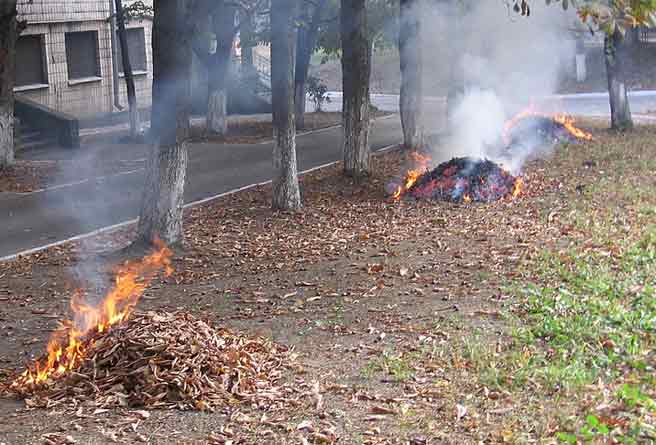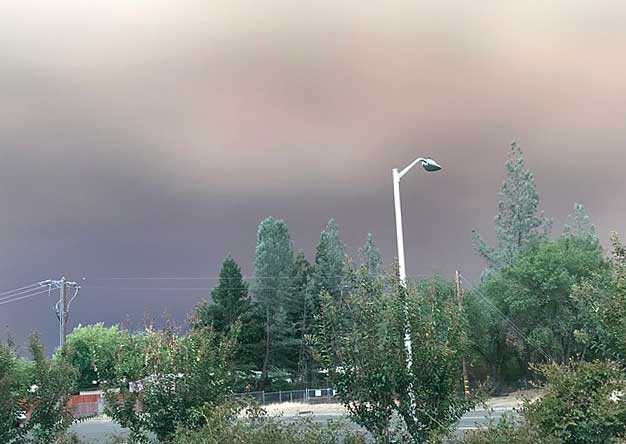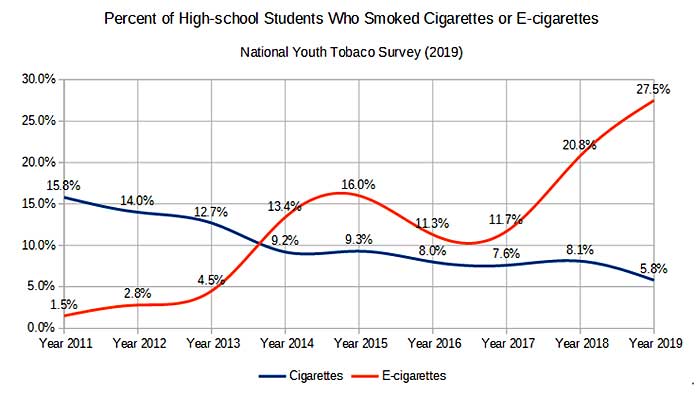Herbs for lung irritation due to smoke inhalation
Wild fires, controlled forest burns, smoke from factories, cigarette smoke, 2nd-hand cigarette smoke (breathing cigarette smoke from others), kitchen fires, and other smoke can cause mucous membranes and the lungs to become irritated and inflamed.

All types of smoke can cause damage to the body if enough is inhaled. The immune system is also affected by breathing smoke, and can result in joint pain and other conditions not usually associated with smoke inhalation.
Here are some tips for avoiding and healing damage from smoke inhalation.
Herbs to the rescue
Herbs can really help to heal smoke damaged tissue and mucus membranes. First, take astragalus, ginseng, yellowroot, elderberry, or licorice to activate the immune system.
Eat oatmeal, yogurt, honey, and bananas to soothe the throat.
Drink marshmallow or mullein tea for irritated and burning lungs. If your lungs feel like they are closing up, take elecampane tincture.

Problems from smoke inhalation
People with asthma, emphysema, heart disease, sinus problems, and allergies are especially prone to developing problems from smoke.
Common symptoms from smoke inhalation and breathing second hand smoke include fatigue, coughing, throat irritation, watering eyes, sinus congestion, wheezing, shortness of breath, headaches, and nose bleeds.
Protect mucus membranes from smoke
Smoke in the air? Stay hydrated! Drink lots of water and herbal teas with lemon. Also drink mullein tea throughout the day.
Irrigate the sinuses with a weak saline solution (salt water)
It is unpleasant, but can bring relief to the sinuses after inhaling smoke – just snort some warm salt water from a bowl up into your nose then blow it back out into a tissue.
Use over-the-counter or prescription eye lubricants to help protect dry, irritated eyes.
Follow the directions on the label. Buy drops that are for lubricating the eyes, not to get the red out.
In emergencies, use homemade eye washes.
If over-the-counter or prescription eye drops are not available, use distilled water to make a week yellowroot, calendula, or eyebright tea. Cool completely, strain two times through clean coffee filters or sterile cotton cloth, and pour a little into eyes with a teaspoon.

Tips to keep safe from outdoor smoke
If you live in an area where there is obvious smoke in the air or where you can smell smoke, stay indoors and keep windows closed. Don't forget pets – bring them inside, too. Stay tuned to your local news and evacuate if necessary.
Beware indoor smoke
- Do not fry food at high temperatures -- you don't need to breath smoke from cooking oil getting too hot.
- Do not burn candles unless you know that they don't contain harmful chemicals and artificial fragrances.
- Do not use fireplaces or wood heaters unless they are vented correctly.
- Avoid air fresheners and incense, too (although a smudge stick is sometimes useful for cleansing the atmosphere).
Quit smoking cigarettes now!
Smoking tobacco is horrible on the lungs. Make preparations to quit tomorrow.
Get rid of ashtrays, air out your house, buy nicotine chewing gum or patches, and find something to do with your hands besides lighting up. Do not substitute vaping for smoking. It is not good for you either!
Get help where ever you can find it. Quitting is important and you can do it. Read more about using herbs to fight addiction here.

How can I help a smoker to quit smoking?
Here are some things you can do:
- Ask them to quit
- Ask them to smoke outdoors
- Provide information on the dangers of smoking
- Explain dangers of second-hand smoke
- Let them know that their hair smells like smoke and they have bad breath.
- Enroll them in a smoking cessation program
If breathing becomes difficult, leave the smoke behind.
If breathing becomes labored, seek a location where smoke is not present. This is especially important for babies, children, the elderly, and people with existing health problems like asthma.
If exposed to lots of smoke, get emergency help as soon as possible. You might also want to keep some Elecampane tincture on hand. It opens up the lungs better than any other herb - and it works quickly.
Traveling through a smoky area?
A wet dish cloth can help protect from smoke in cases of emergencies. Most commercial face masks are designed to trap larger particles like sawdust, not smoke (or microscopic germs).
During the COVID-19 pandemic of 2020, lots of studies were done on masks. A dry double or triple layer cotton face mask offers pretty good protection against viruses and bacteria but I am not sure about smoke.
After exposure to smoke, add extra antioxidants to the diet.
Fresh vegetables, fruits, and berries can really help the body to remove toxins via the digestive and urinary systems.
Antioxidants like rose hips and elderberries help the body to heal. Also consider taking a vitamin C, vitamin A, and vitamin D supplement for a couple of weeks after smoke exposure.
Smoke inhalation injury affects every organ in the body.
During a house fire, toxic chemicals, steam, and smoke can damage the respiratory tract in just a few seconds. Too much smoke can cause carbon monoxide poisoning, asphyxia, headache, impaired thinking, seizure, coma, weak pulse, and death.
In emergency situations, resuscitation fluids and intubation may be required. These procedures are ususally performed by a EMT or other healthcare professional.
In critical cases, a ventilator is required.
Patients are encouraged to do therapeutic coughing and deep breathing exercises during recovery. They should also roll from side to side every few hours to help prevent complications.
When the patient is able, light exercise like walking is also beneficial. Smoke inhalation victims also require plenty of water to stay hydrated.
If the larynx is damaged, hoarseness can last for months. Early treatment is key to recovery.
Symptoms of severe smoke inhalation include singed nasal hair, soot around the nostrils, facial burns, wheezing, and hoarseness. If a person has experienced severe smoke inhalation, remove all rings, watches, and tight fitting items as soon as possible.
*If exposed to lots of smoke or if breathing becomes difficult, get emergency help as soon as possible.
Sources:
https://www.ncbi.nlm.nih.gov/pmc/articles/PMC5879861/
Blessings to you and yours!
Thanks so much for reading my blog. Jan.

*Note - the information on this website has not been evaluated by the Food and Drug Administration.
© 2005-2024 website design and content by Janice Boling